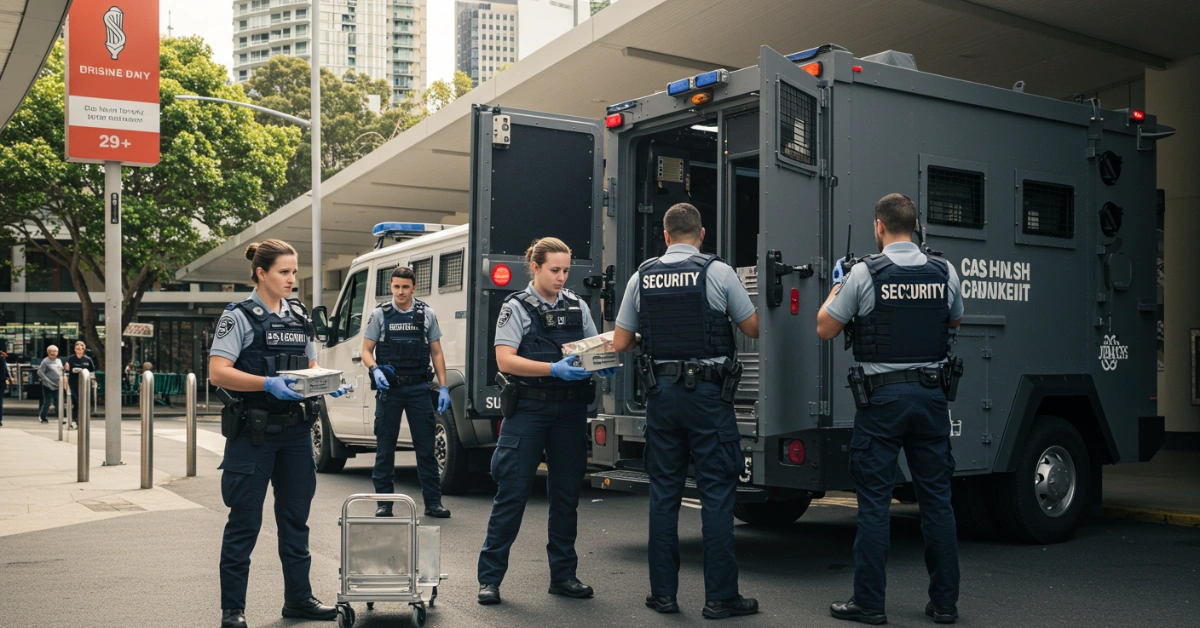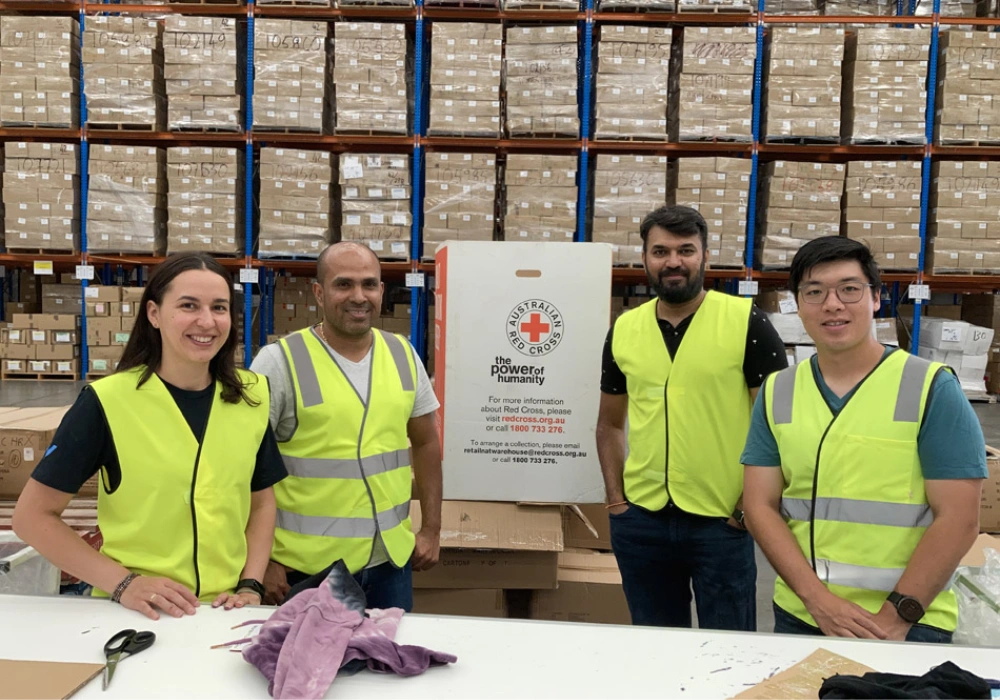Cash in transit is known as the safe movement of money from one place to another. This is done by special companies that are trained to keep cash safe.
These companies use big, strong trucks, smart technology, and expert staff to make sure money gets to its destination without any danger.
1. Why Is It Considered an Essential Service for Businesses in Brisbane?
Many businesses in Brisbane, like shops, banks, and hotels, need to send or receive cash. Doing this alone can be risky and time-consuming. Cash-in-transit services are used to protect money and people, making sure everything stays safe and runs smoothly.
For example, a small coffee shop might collect $2,000 in cash every day. Carrying that money to the bank alone could lead to theft or loss. By using cash in transit, the shop owner can focus on customers while trained professionals handle the money.
2. What Risks Are Involved in Handling Cash Without Professional Help?

If cash is carried by hand, it can be stolen, lost, or cause problems for the person carrying it. Employees might feel unsafe, and businesses could lose money. Professional services are hired to stop these risks and make cash handling stress-free.
Imagine a hotel that collects thousands of dollars in cash each night. If employees are asked to carry the money to the bank, they might face danger from thieves. With cash in transit, armored trucks and guards are sent to do the job safely.
3. What Is the Step-by-Step Process — From Pickup to Deposit?
- Scheduling a pickup: A business is asked to schedule a pickup online or by phone. Some companies offer apps for easy booking.
- Cash collection: Trained guards are sent to collect the cash in special bags that are tough to break. These bags are sealed and tracked.
- Secure transport: The cash is placed into armored trucks that are watched by cameras and GPS. These trucks are built to block attacks.
- Delivery to banks or vaults: The money is taken to a bank, vault, or cash processing center for safekeeping.
What Technology Is Used to Ensure Maximum Safety During Transport?
Modern tools like GPS tracking, alarms, and real-time video monitoring are used. This tech is managed by experts who watch every trip closely.
For example, if a truck is delayed due to traffic, the company is notified instantly. If an emergency occurs, backup plans are activated to keep the cash safe.
4. What Makes a CIT Service Reliable, Secure, and Worth Your Investment?
- Armored vehicles are built to block attacks. These trucks have thick walls, bulletproof glass, and locks that are hard to break.
- Trained guards are licensed and tested for trust. They are taught how to handle emergencies and use safety equipment.
- Insurance is given to cover any rare accidents. If something goes wrong, the business is paid back for lost money.
- Tracking systems are added to follow the cash in real time. GPS and cameras make sure every move is recorded.
If you want to learn more about security tech, check out this blog on access control systems in Brisbane .
5. Who Uses These Services Regularly and Why?
- Shops and malls send cash daily. Big stores like supermarkets collect thousands of dollars each day and need safe transport.
- Banks and credit unions need safe deposits. They use CIT to move money between branches or to central banks.
- Hotels and pubs have high cash flow. These places collect cash from guests and events and need it moved safely.
- Event organizers collect payments that must be protected. Concerts, festivals, and markets often use CIT to handle large sums of cash.
6. Why Is Outsourcing Cash Transport a Smarter and Safer Business Decision?
When cash is moved by staff, it can lead to danger, time loss, and stress. By hiring experts, businesses are kept safe, employees are protected, and time is saved. Reports are also given to track every move.
For example, a restaurant owner might spend 30 minutes each day driving to the bank. Over a year, that adds up to 125 hours — time that could be spent improving the business.
7. What Qualities Should You Look For in a Trustworthy Service Provider?
- Licensing is checked to make sure the company is allowed to work. All CIT providers must follow strict rules set by the government.
- Reviews are read by other customers to see if they are happy. Look for companies with 4–5-star ratings online.
- Pricing is compared to find fair costs. Some companies charge per pickup, while others offer monthly plans.
- Insurance is confirmed to cover any mistakes. Always ask for proof of coverage before signing up.
8. What Factors Influence the Price, and How Can You Compare Providers?
Prices are based on how often pickups are needed, how far the trip is, and how much cash is moved. Some companies offer deals for regular service. Call a few providers to find the best deal.
For Example:
- Daily pickups might cost $50–$100 per trip.
- Weekly pickups could be $200–$300 per month.
- Urgent deliveries may cost extra, but some companies offer 24/7 service for emergencies.
9. Final Thoughts: Why Investing in Professional Cash Transport Matters for Long-Term Growth
Cash in transit is seen as a smart choice to protect money, save time, and keep workers safe. By picking the right provider, businesses can grow without worrying about cash risks.
If you want to learn more about security tools, read this post on alarm monitoring in Sydney .



